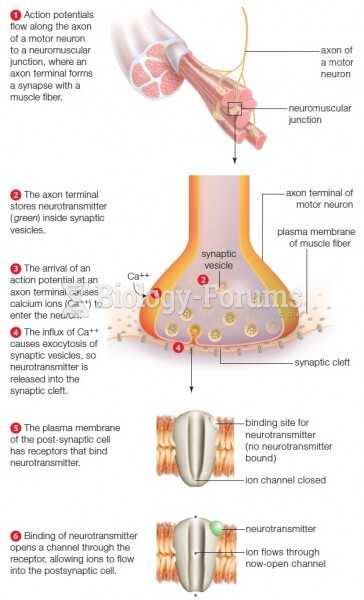|
|
|
People with high total cholesterol have about two times the risk for heart disease as people with ideal levels.
More than nineteen million Americans carry the factor V gene that causes blood clots, pulmonary embolism, and heart disease.
You should not take more than 1,000 mg of vitamin E per day. Doses above this amount increase the risk of bleeding problems that can lead to a stroke.
The eye muscles are the most active muscles in the whole body. The external muscles that move the eyes are the strongest muscles in the human body for the job they have to do. They are 100 times more powerful than they need to be.
The first monoclonal antibodies were made exclusively from mouse cells. Some are now fully human, which means they are likely to be safer and may be more effective than older monoclonal antibodies.







